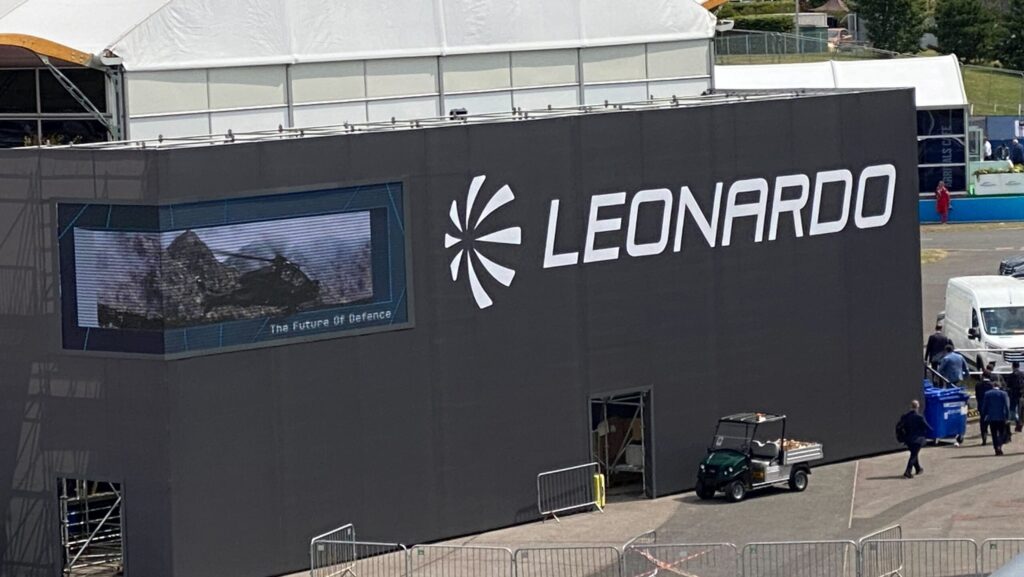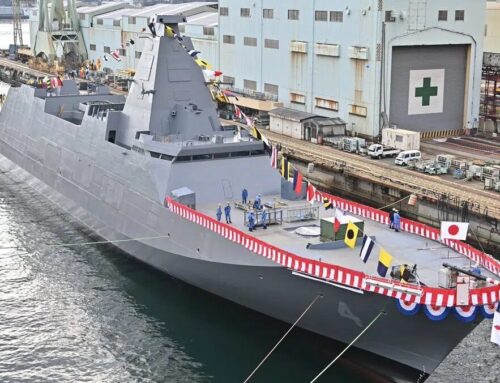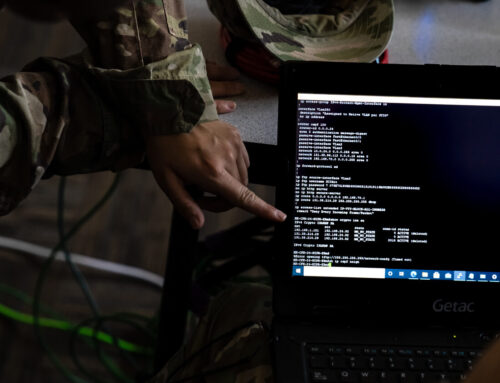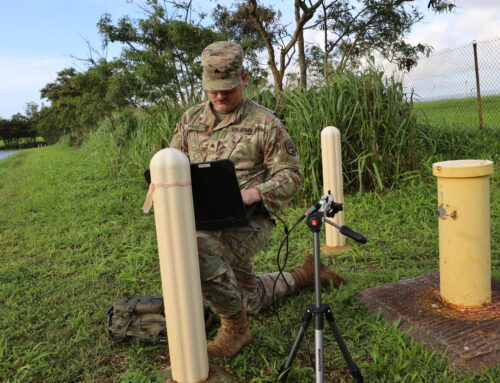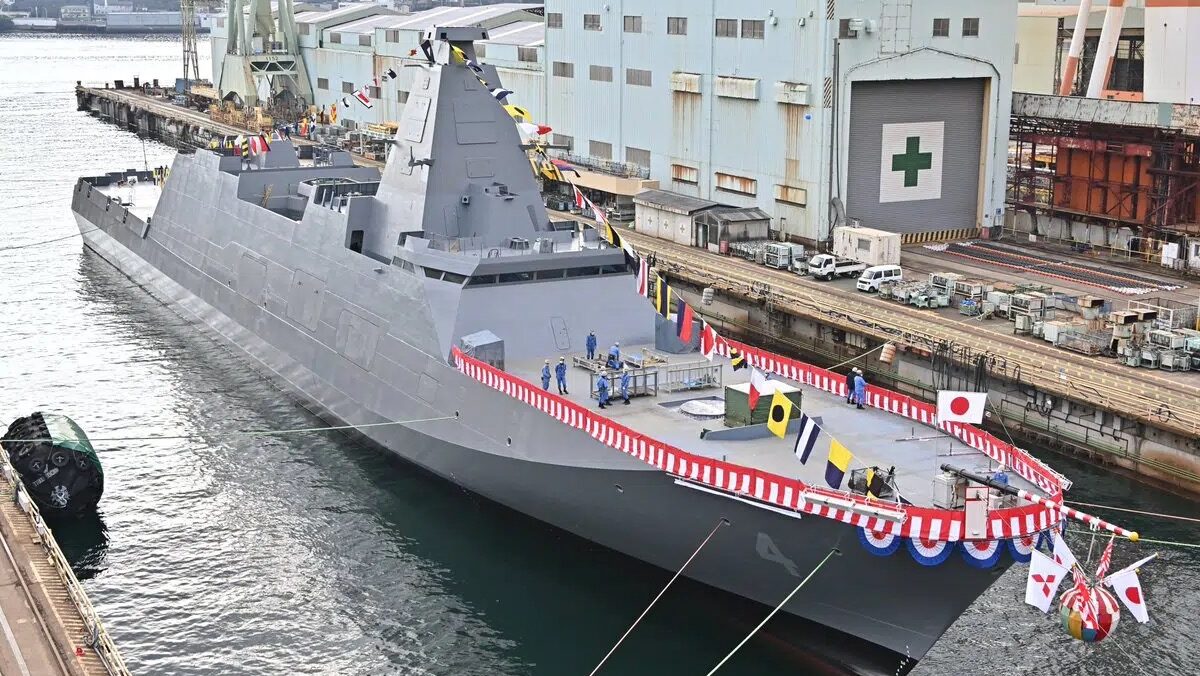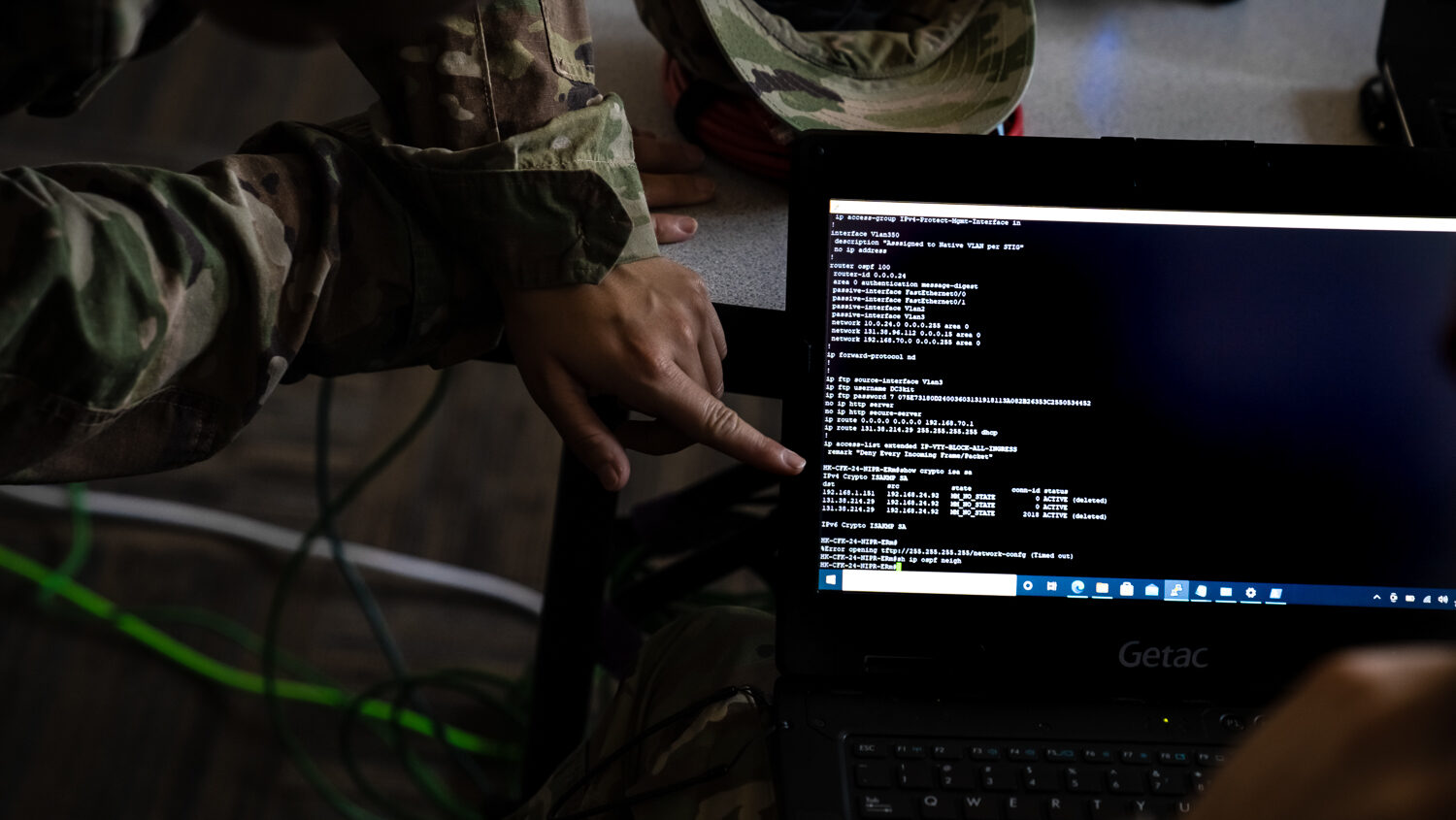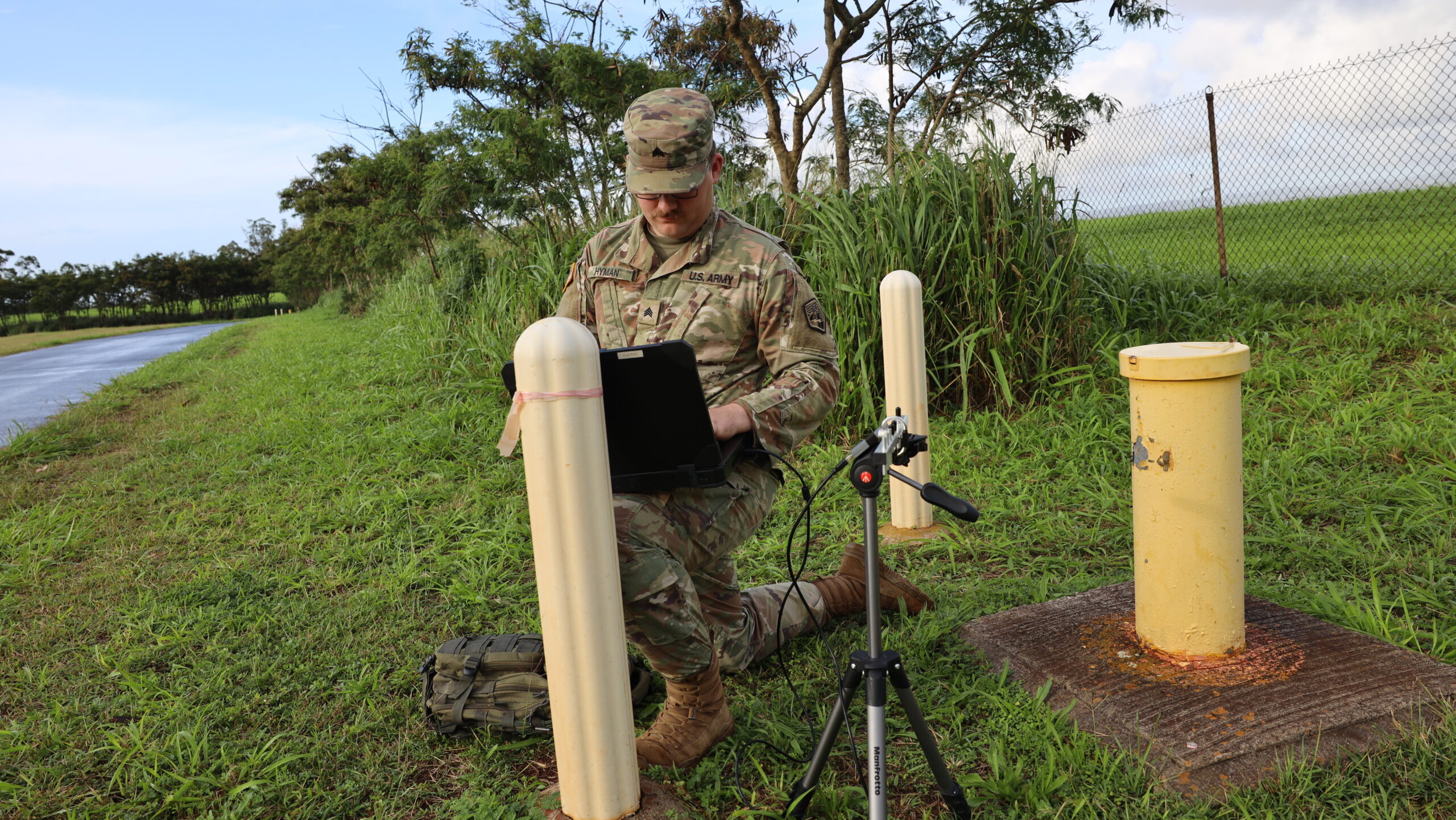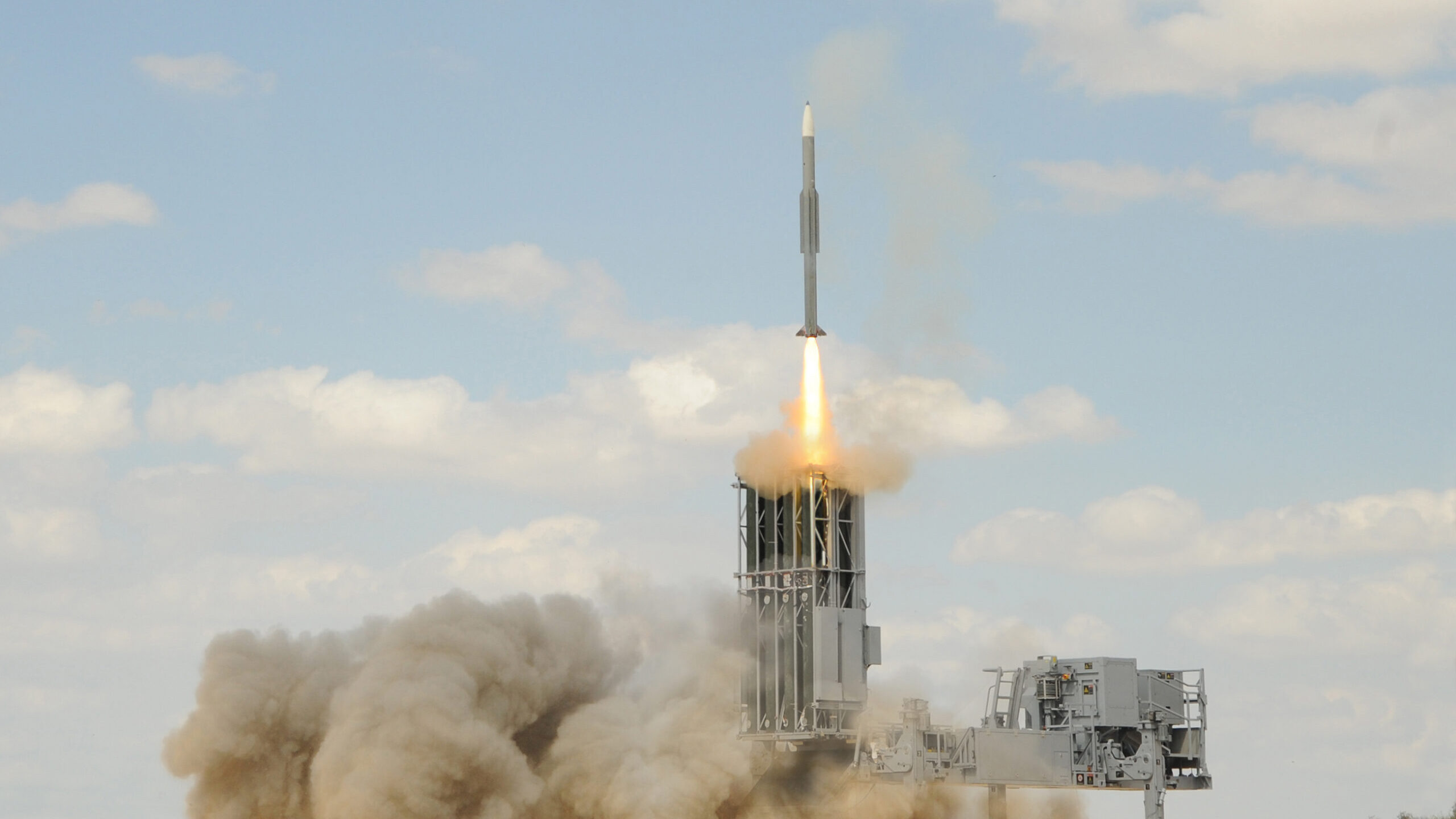The Leonardo chalet greets visitors as they enter the 2024 Farnborough Airshow. (Aaron Mehta/Breaking Defense)
FARNBOROUGH 2024 — A top official at Italian defense giant Leonardo expects to greater consolidation among European defense firms in the future, particularly in the shipbuilding, cyber and space sectors.
Asked about the health of the European defense industry in an interview with Breaking Defense, Lorenzo Mariani, the co-general manager of Leonardo, was direct: “Consolidation. Consolidation is the only way.”
To be clear, Mariani emphasized that this isn’t M&A activity in the way that American firms usually go about it — “They just buy,” he said — but rather a merging of existing national champions into pan-European organizations, akin to Airbus or five-country missile manufacturer MBDA, where Mariani held a key leadership role before returning to Leonardo in 2023.
“The reason why MBDA has been so successful, in my view, is that it was capable of keeping the national element — including security, but also workforce, even restricted elements, national sovereignty — safe while exploiting the size of a joint company,” he said, acknowledging that each country likes to protect its national champions. “I think the MBDA model is the only one that really can work for Europe, but, the devil is in the details.”
One of those details that would need to be worked out in any consolidation effort is exactly how much would be allowed in Europe. The European Union has strong rules to prevent monopolies, meaning a single company for a market sector would likely never be formed, no matter how many countries are involved in its creation.
Still, where could consolidation happen? To Mariani’s mind, missiles are sorted with MBDA, and the electronics sector has already experienced some levels of consolidation. But just about everything else, it seems, should be on the table.
“Space, I think, will have to be the next. Nobody talks about [it], but shipyards are another place where maybe it’s urgent, urgent consolidation if you think there are [many] more shipyards than [requirements] today,” he said. He also pointed to the aeronautics industry, where the UK-Italian-Japanese GCAP effort is up against the Franco-German SCAF effort, as another area where there may not be enough demand for multiple options.
In addition, “Cyber is still very fragmented, very fragmented. And I think that is the area where taking into account how delicate these matters are for national security, is a little bit an obstacle to consolidation. But nevertheless, there will be a movement there.”
Reorganization Underway
Of course, major consolidation of smaller companies can lead to future challenges.
Earlier this year, Leonardo announced a five-year plan that would see, among other moves, the company work to trim its electronics line of roughly 100 programs that no longer fit with the firm’s goals.
“Our electronics division is the production of a number of years consolidation. … The progressive consolidation produced a single portfolio of products that was basically the sum of the products of the overall industry,” Mariani said. “We realized that, apart from those who were still bringing either good revenues and margins, or obligations in terms of logistics support, there is a number that we quantified in 20 percent of products that can be progressively phased out.”
While unable to go into detail because of an upcoming financial earnings report, Mariani said the work was now underway in identifying those programs and cutting off funding.
“We have identified those, and in the second half of the year already, we will start by the basic actions that are related to that: ensuring that no investment, or no major investment, is made on those, ensuring that people are relocated to other more demanding and more modern products,” he said. “Communications to users, if any — because in some cases, there are no users anymore, because you can also that when you dig in.”


